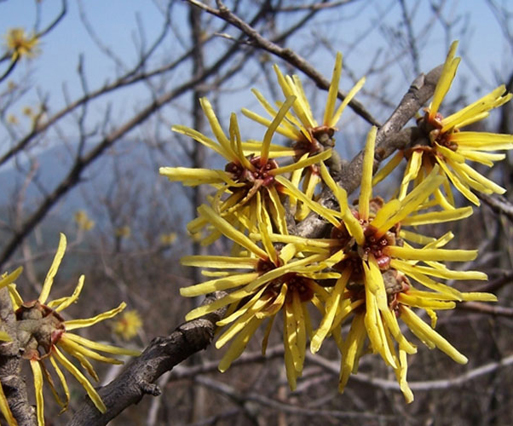INCI name: | Hamamelis mollis Oliver |
Part used: | Flower |
Extraction method: | Distillation |
CAS No.: | N/A |
Origin: | USA |
Appearance : | Clear and transparent mobile liquid |
Odour: | The typical hamamelis characteristic odour |
Relative Density(20℃): | 1.0000 |
Refractive index(20℃): | |
Essential oils contain amount (%) : | N/A |
Witch-hazels are a genus of flowering plants in the family Hamamelidaceae, with four species in North America (H. mexicana,H. ovalis,H. virginiana and H. vernalis), and one each in Japan (H. japonica) and China (H. mollis). The North American species are occasionally called winterbloom. The witch-hazels are deciduous shrubs or (rarely) small trees growing to 3–8m (9.8–26.2 ft) tall, rarely to 12m (39 ft) tall. The leaves are alternately arranged, oval, 4–16cm (1.6–6.3 in) long and 3–11cm (1.2–4.3 in) broad, with a smooth or wavy margin. The genus name, Hamamelis, means "together with fruit", referring to the simultaneous occurrence of flowers with the maturing fruit from the previous year.[6] H. virginiana blooms in September-November while the other species bloom from January-March. Each flower has four slender strap-shaped petals 1–2cm (0.39–0.79 in) long, pale to dark yellow, orange, or red. The fruit is a two-part capsule 1cm (0.39 in) long, containing a single 5mm(0.20 in) glossy black seed in each of the two parts; the capsule splits explosively at maturity in the autumn about 8 months after flowering, ejecting the seeds with sufficient force to fly for distances of up to 10m(33 ft), thus another alternative name "Snapping Hazel". |  |